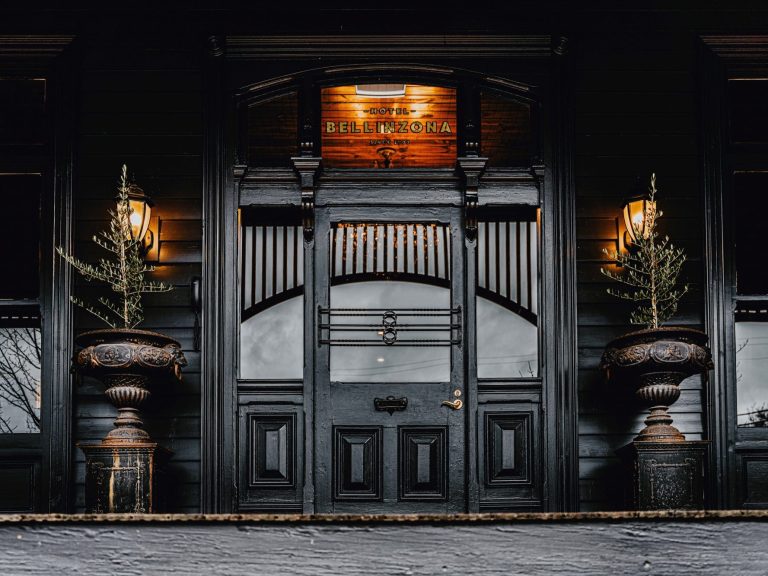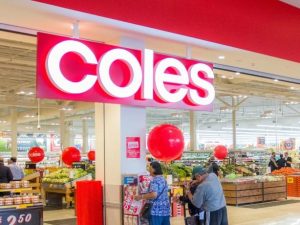Why are so many craft breweries going bust?
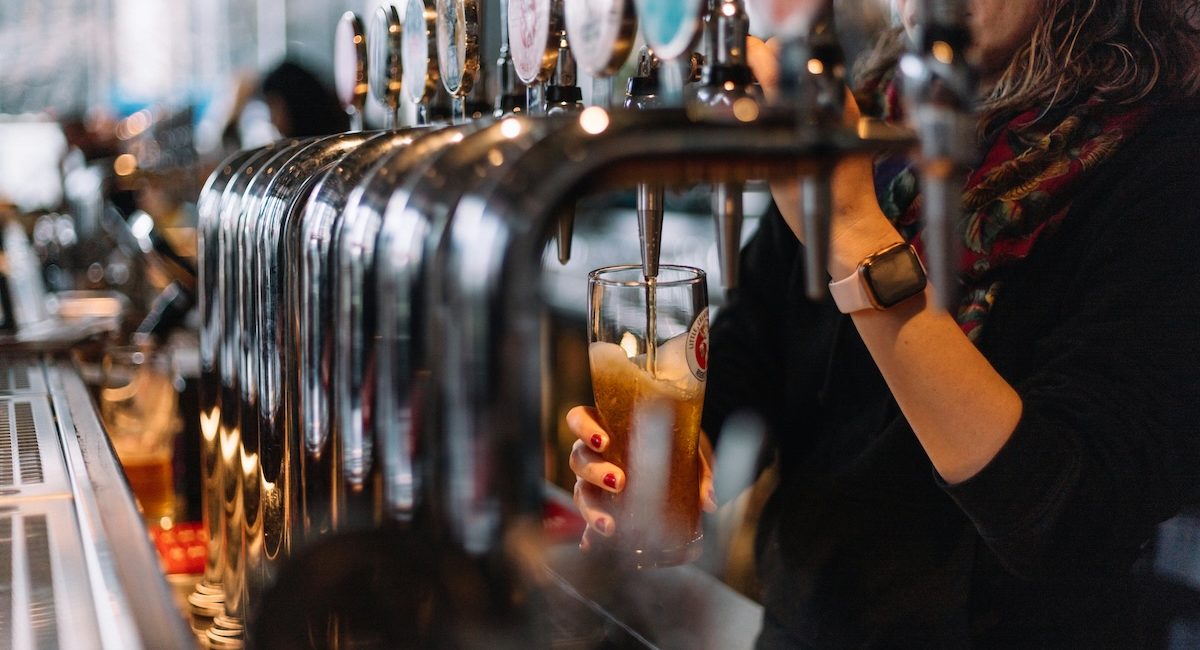
A ‘perfect storm’ of challenges has knocked the froth off the craft beer industry, with more than a dozen independent brewers going into administration over the past year.
It’s a tough time to be a craft brewer, with rising overheads, the cost of living crisis and declining beer consumption pushing some brewers to the brink.
Notable brands calling in administrators to rescue them from spiralling debts include Wayward and Akasha in Sydney, Hawkers in Melbourne, and Ballistic and Black Hops in Queensland.
While some are emerging from administration with restructured finances or changes to ownership, others are shutting up shop completely.
Victorian producer Deeds Brewing was the most recent local brewery to go under as a result of the crisis, announcing the decision this month to wind up the business after entering administration and failing to secure a buyer or investor.
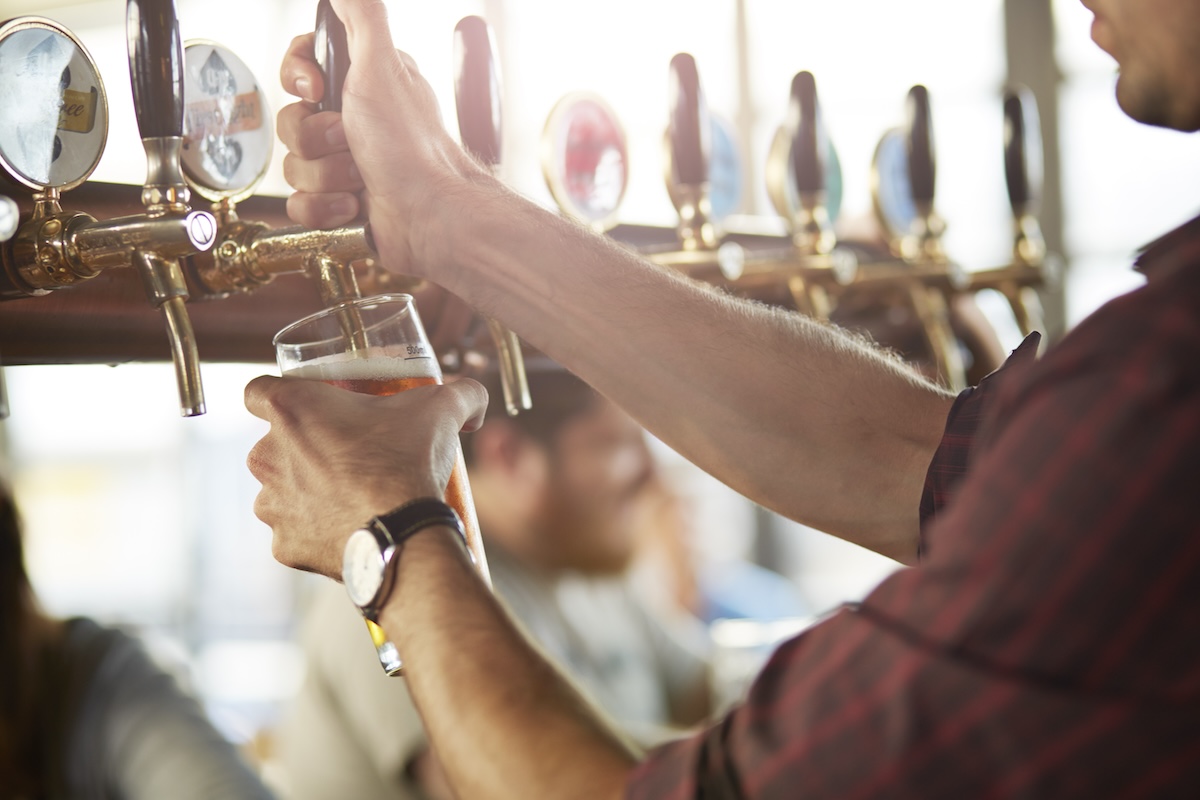
Brewers have faced “layers upon layers” of challenges in recent years, according to Independent Brewers Association chief executive Kylie Lethbridge. Picture: Getty
The roots of the crisis go back several years, and like the challenges facing many businesses Australia-wide, stem from the upheaval brought about by the pandemic and the ensuing financial fallout from high inflation and rising interest rates.
But while the industry of more than 600 brewers faces a crisis point with many brewers facing their toughest challenges ever, some brands are reinventing themselves to capitalise on changes to consumer behaviour.
How did we get here?
The challenges facing independent brewers go back to the pandemic, when the federal government allowed many businesses to defer tax obligations as a support measure, according to Independent Brewers Association chief executive Kylie Lethbridge.
“Many brewers were allowed to defer their excise payments during Covid,” she told realcommercial.com.au.
“But when they had to pay their tax back and meet their obligations, they ran into trouble.”
“It may have been fine in a normal world, but we were faced with significant cost increases of up to 40-50% in some instances.”
The cost of barley, which had already been rising steeply since late 2020, reached a peak in April 2022 shortly after Russia’s invasion of Ukraine, which is often referred to as the ‘breadbasket of Europe’.
The price of carbon dioxide, required for the carbonation of beer, is also at a record high after jumping in mid-2022.
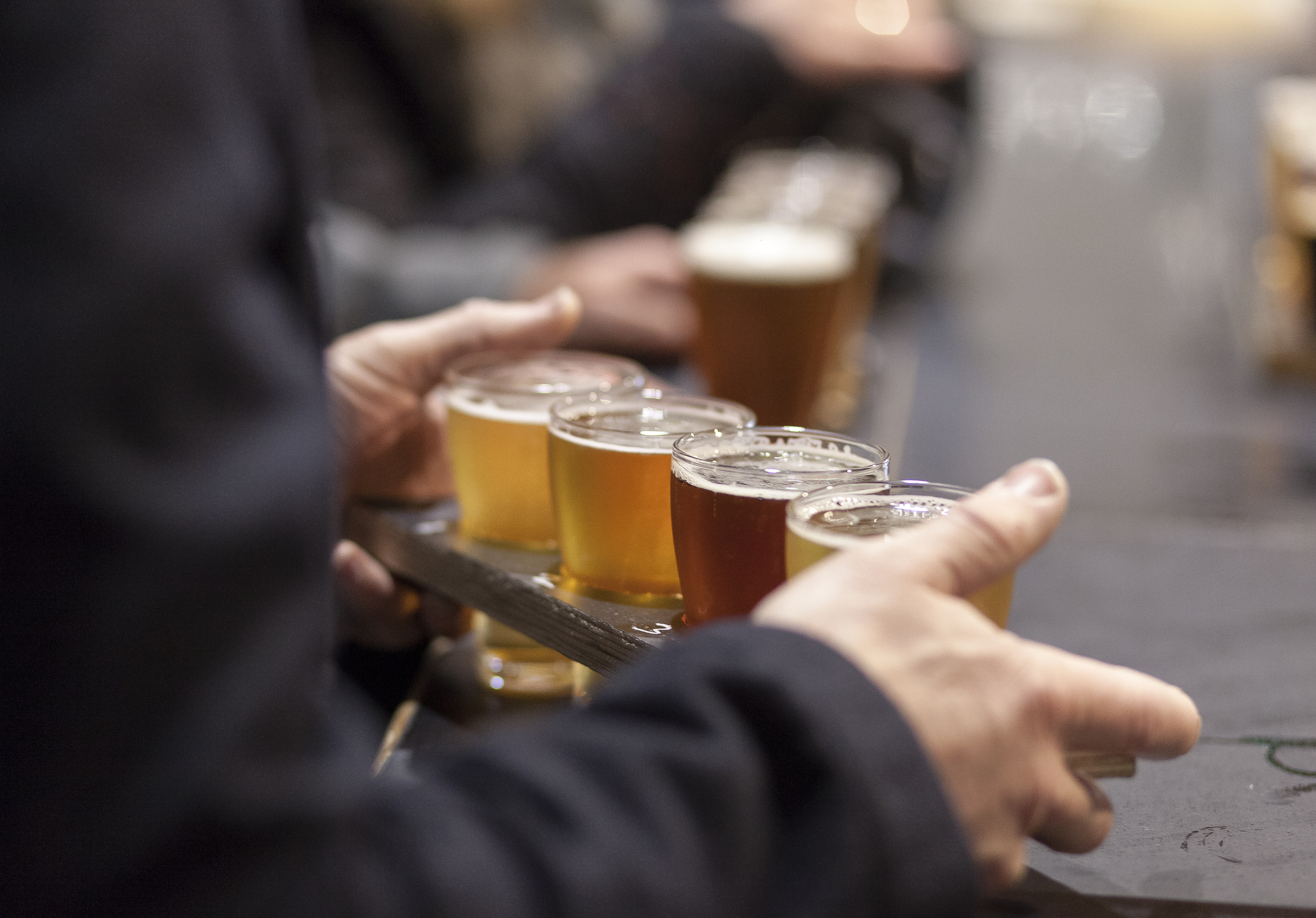
A spike in ingredient costs and rising overheads have made making beer more expensive. Picture: Getty
Melbourne-based brewer Hawkers Beer, which has recently emerged from administration, said the costs of making their signature West Coast IPA increased by 23.3% from 2018 to 2023.
Over that same period, the recommended retail price of that beer had increased by just 11.25%.
“We’ve had massive price increases from inflation,” Hawkers director Mazen Hajjar told realcommercial.com.au.
“Grain in one year went up 22%, aluminium for cans went up 22%, the cost of logistics went up three or four times, energy went up 90%, and we’ve been absorbing these costs.”
Surging rental prices have hit brewers hard, too. Sydney-based Bracket Brewing was recently forced to close shop after being notified that the rent for the Alexandria warehouse the brewery occupied would increase by 67%.
After the search for an equivalent venue nearby proved harder than expected, the brand temporarily transitioned to “gypsy brewing” utilising another brewery’s venue and equipment.
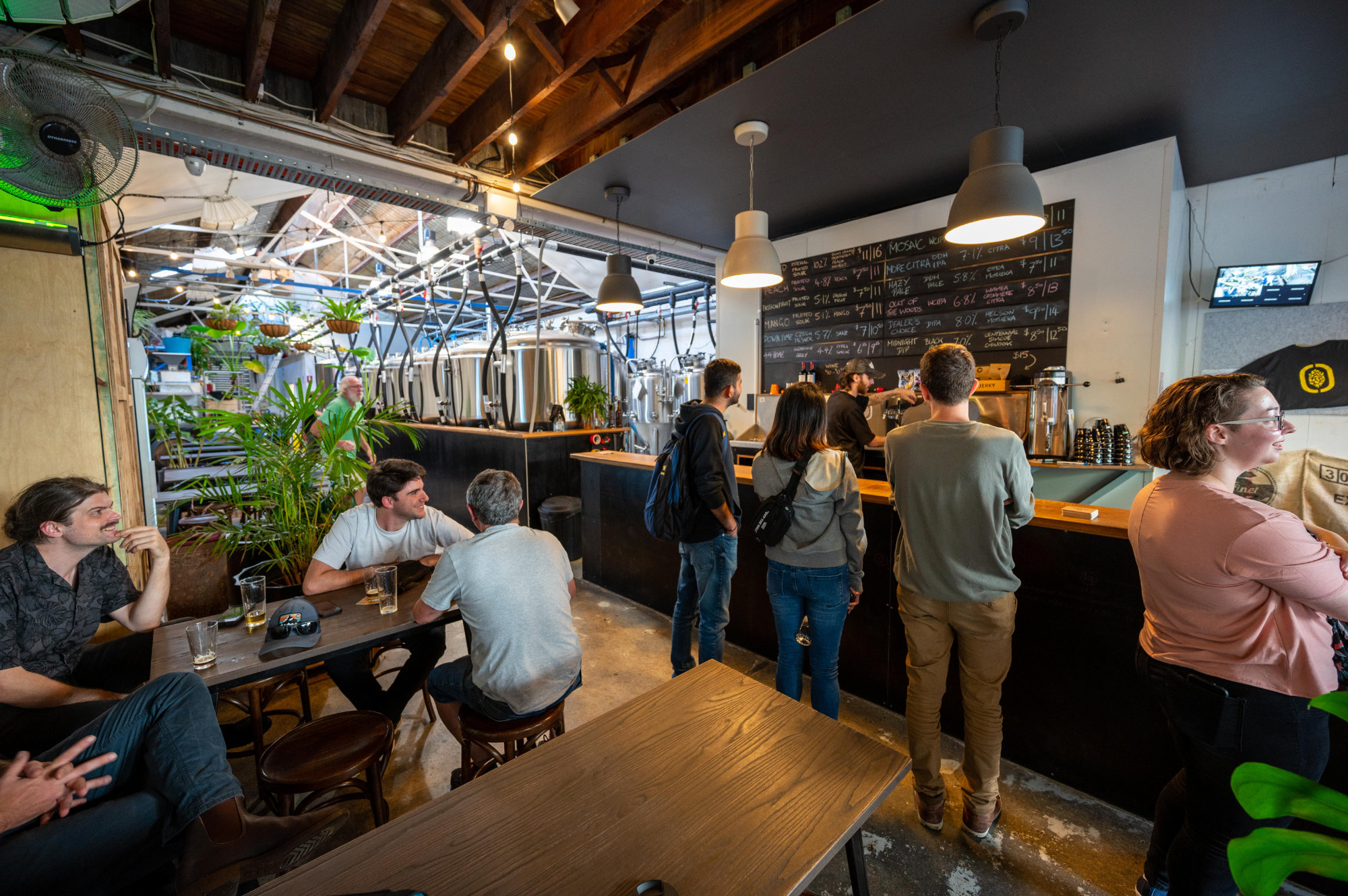
Bracket Brewing closed their brewery and tap room in Alexandria in inner Sydney after rents surged. Picture: Bracket Brewing / Facebook
Ms Lethbridge said rising rents were a “massive part of the problem.”
“It’s possible that landlords would rather go untenanted than be flexible in these challenging times,” she said.
The surge in input costs has come at a time when consumers have cut back on spending amid the cost of living crisis, meaning brewers can’t justify raising prices proportionally, according to Ms Lethbridge.
“What we faced was a reduction in consumer spending with people not being able to afford those little luxuries in life,” Ms Lethbridge said.
“Because we’re a premium product it’s hard to pass those costs onto our consumers because we’re already a little more expensive,” she said
“Then when you’re faced with an increase in rent and interest rate rises for those that have borrowed, it was the perfect storm.”
The tax man comes knocking
While Deeds cited rising input costs, a challenging sales environment and an issue with contaminated malt as contributing factors to its troubles, the brewery said its lingering tax debt since the pandemic and an inability to come to terms with the Australian Tax Office pushed the brewery into administration.
“The ATO had previously been ok to let us pay when we could, but in the last 12 months they have changed their approach,” founders Patrick Alé and David Milstein said in a joint statement in March.
“We’ve asked the ATO for a payment plan numerous times, and have been rejected each time.”
“We simply wanted more time so we would not have to put massive strain [on] our business during very difficult market conditions.”
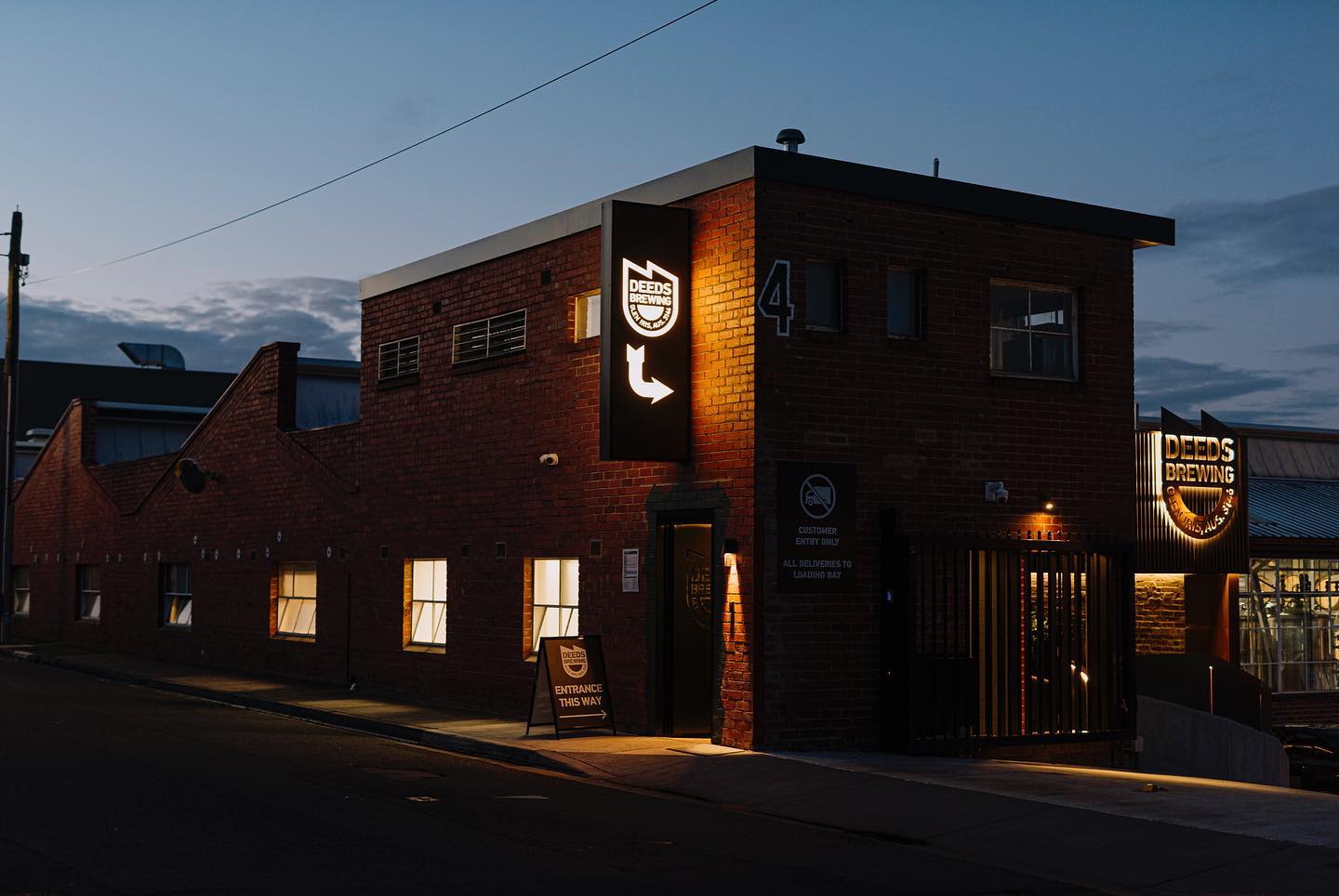
Deeds Brewing in Victoria ceased trading this month after entering voluntary administration and failing to secure a buyer or investor. Picture: Deeds Brewing / Facebook
Mr Hajjar said Hawkers had a similar experience, with the tax office appearing inflexible when it came to repaying the debt.
“During Covid the government gave us a relief of excise payments which allowed us to invest in packaging equipment to service the market we still had, because we had lost the pub market,” he said.
“Right after Covid the government started demanding the money back.”
“We came to an agreement on a payment plan, we paid it off a couple of months early, but we had started accruing debt again.”
Mr Hajjar said Hawkers proposed a new payment plan in November last year, which was rejected by the ATO because the periodic payments weren’t equal.
“So we proposed a second plan in December,” he said. “They came back to us on the first of February with a new excise increase, rejecting our payment plan and giving us seven days to repay it in full.”
“They were inflexible with our payment plan and they forced us into administration.”
“We were up to date with all our suppliers. We had no outstanding debt in the market. The only debt that was outstanding was our excise debt.”
“When the ATO says ‘we want our full payment’, you either pay it off or you’re trading insolvent if you know you can’t pay it off.”
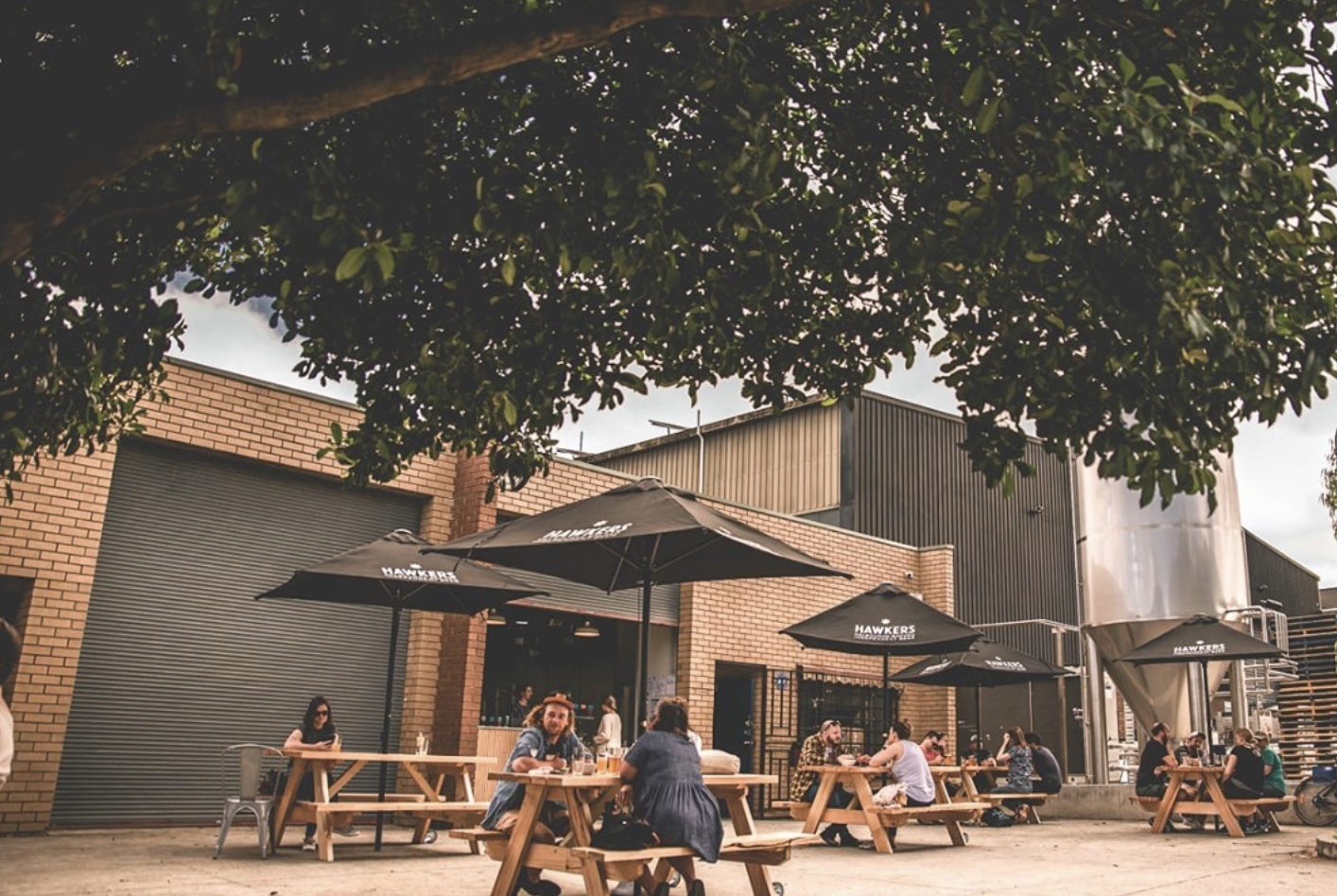
Hawkers Beer emerged from voluntary administration after a restructuring proposal was approved by creditors. Picture: Hawkers Beer / Instagram
While not speaking about specific breweries, an ATO spokesperson said in a statement to realcommercial.com.au that a small proportion of businesses have excise debts, some of which were deferred as part pandemic support measures, and payment plans were an option for some businesses that need additional time to pay their tax.
“It is the ATO’s responsibility to ensure a level playing field for all businesses and support those who are doing the right thing and paying on time, whilst taking strong and deliberate action to deal with those who ignore their obligations and refuse to engage with us to pay their outstanding amounts,” the spokesperson said.
“In some cases, where a brewer or excise licensed manufacturer do not engage with us, we may remove their excise payment permissions, requiring lodgement and payment up-front before the entity can distribute their beer.”
“In the highest risk cases and where appropriate alternatives prove unsuccessful, the ATO may even consider suspending their manufacturing licence.”
Australians are drinking less beer
Changing tastes may also be having an effect on brewers’ bottom lines. According to Roy Morgan, while the proportion of over-18 Australians who drink alcohol has increased since the pandemic, the number of people who drink beer has dropped.
The proportion of Australians who drink beer declined to 32.7% in the 12 months to 2023, compared to 37.6% in the 12 months to March 2020, Roy Morgan estimates. This equates to about 688,000 Australians who no longer drink beer.
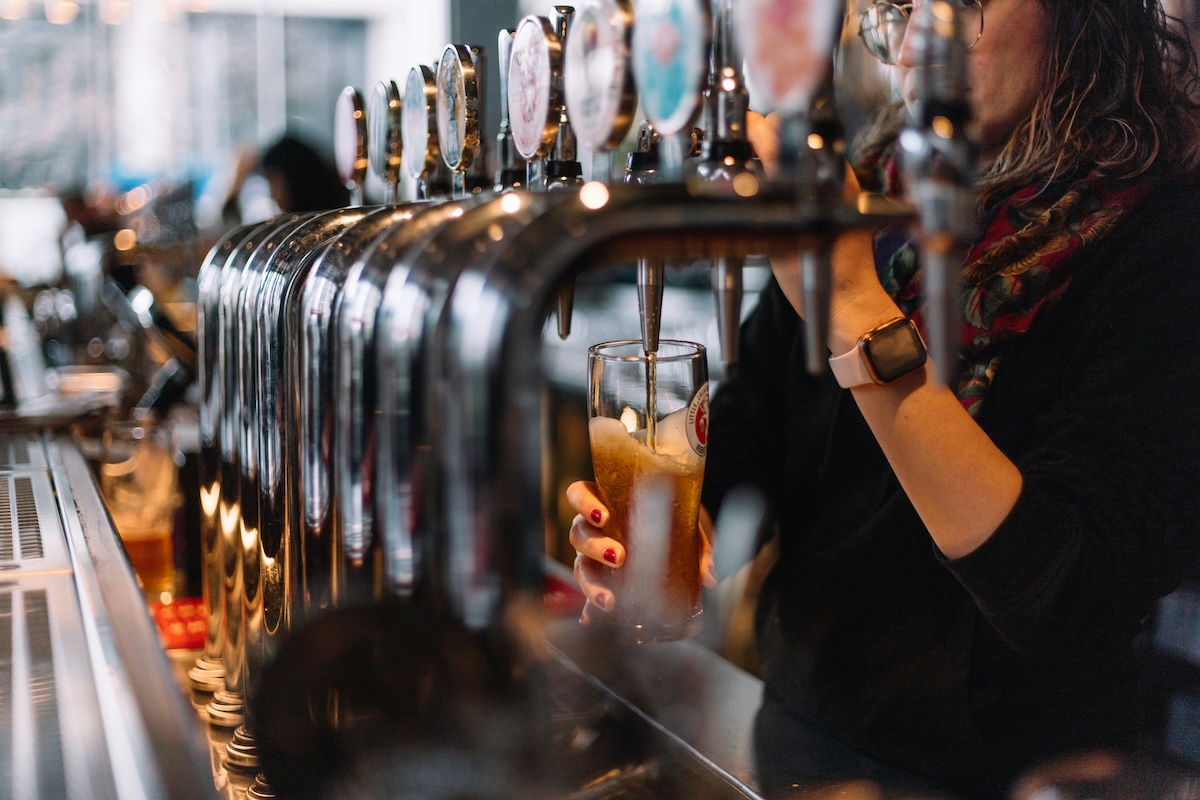
Beer consumption has declined recently, with wine and seltzer drinking increasing. Picture: Getty
Over that same period, the proportion of Australians consuming premixed drinks has doubled, while almost a million more people are now drinking wine.
Meanwhile, the beer industry is becoming increasingly consolidated, with major players buying up smaller breweries, reducing the market share of independents, Ms Lethbridge said.
“We have the supermarket chains making their own beer, and the two large multinational breweries owned by Japanese companies dominating the market when it comes to venue access to taps,” she said.
Brewers double down on hospitality
It’s not all dire news in the industry, with some brewers doubling down on their hospitality offering in a bid to boost revenue.
In Sydney, Pickled Monkey is opening a 300-seat tap room that includes a pizzeria, American-style grill and sports bar, located just footsteps from the iconic Factory Theatre and across the road from Gelato Messina.
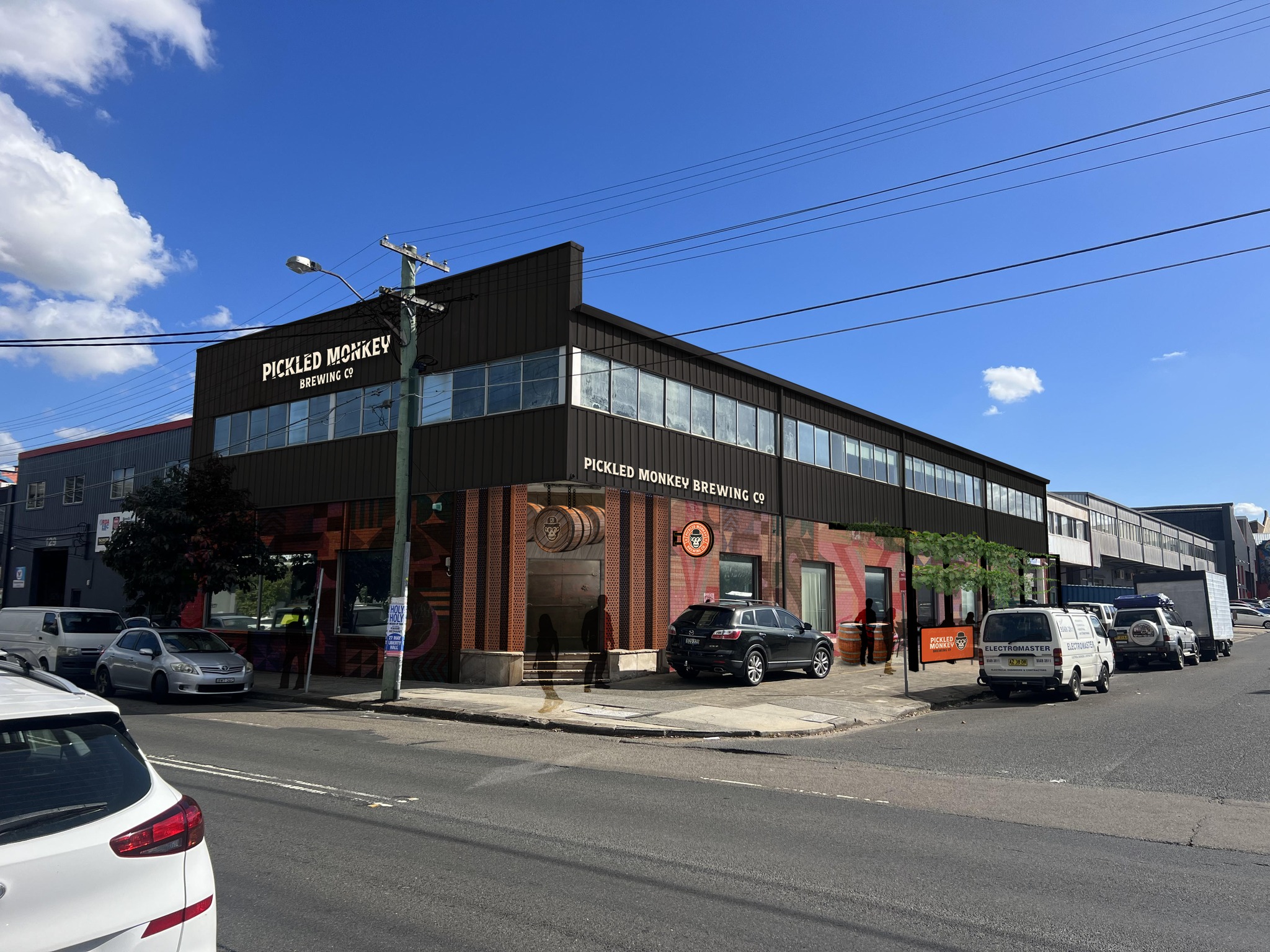
A render of Pickled Monkey’s new brewery in Marrickville in inner Sydney. Picture: Pickled Monkey / Facebook
The brewer has secured a 20-year lease on the 635sqm warehouse, with first-right option to purchase the building should it come up for sale.
Ms Lethbridge said breweries that were diversifying were feeling “a little less pain.”
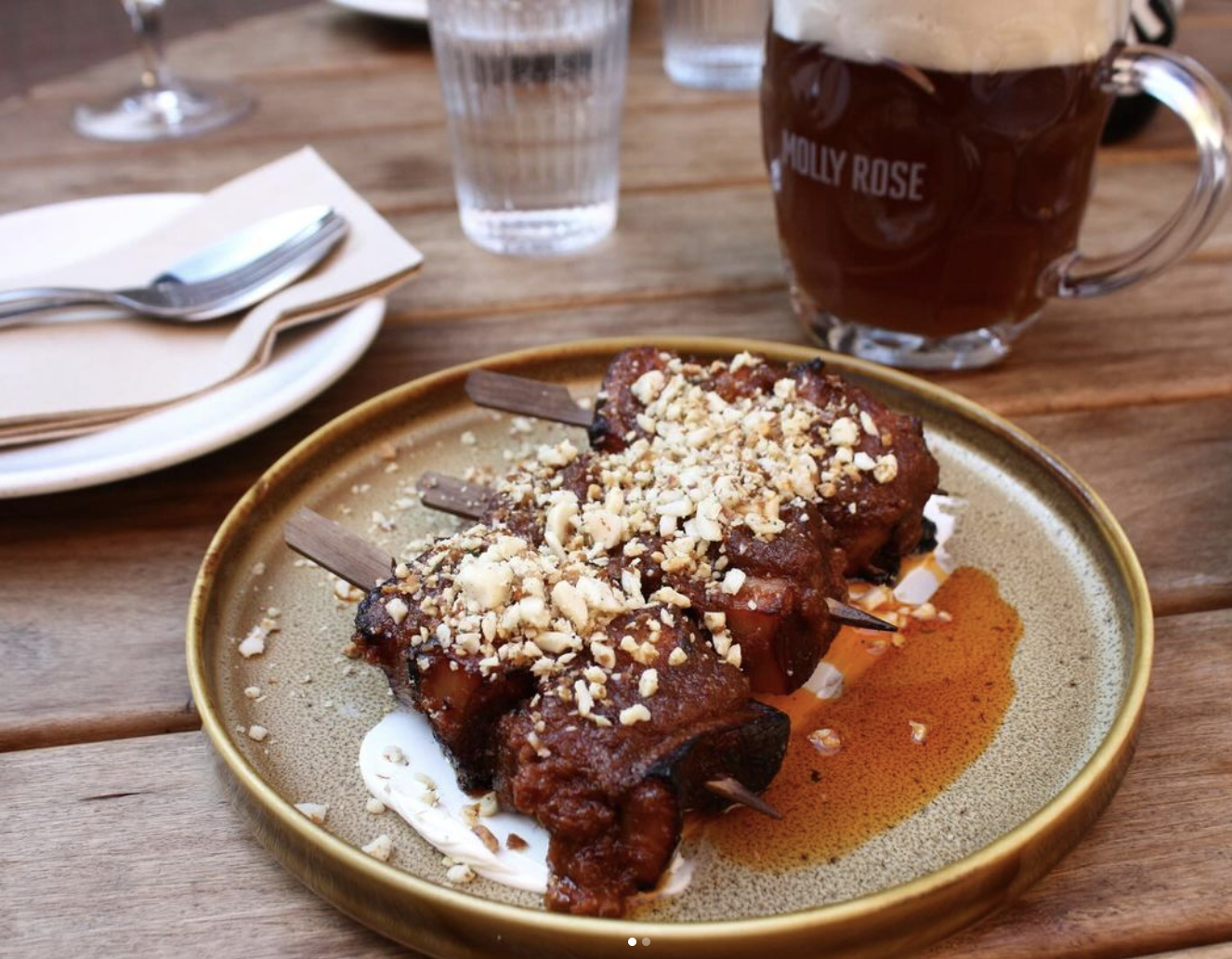
Food is as much a part of the menu as beer at Molly Rose in Collingwood in inner Melbourne. Picture: Molly Rose / Instagram
“Molly Rose in Melbourne is a great example of where this is happening, where sophisticated food offerings are being paired with beer,” she said.
“Diversification of those hospitality offerings is attracting a broader market than just beer aficionados.”
Is beer taxed too much?
The rate of the beer excise has surged recently, given it’s pegged to the rate of inflation which spiked late last year.
In the three years to March 2021, the beer excise for full-strength bottled beer increased by 4.6%. In the three years since then, it went up more than 16%.
Ms Lethbridge said beer was taxed too much in Australia, especially when compared with other alcoholic beverages such as wine, which is taxed at a much lower rate.
“We’re the third highest taxed country for beer in the world,” she said.
Mr Hajjar said the brewing industry would continue to face major challenges until the “unfair” tax system was fixed.
“On $11 million revenue at Hawkers, we pay $5.5 million in tax,” he said.
“I think we need to have a fair tax system, and we need to have fair competition.”
“This is a country that was proudly about a fair go, but it doesn’t seem like everyone is getting a fair go.”


